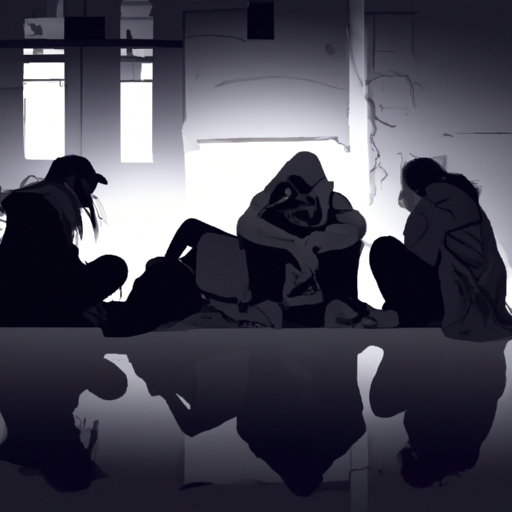Opioid Deaths in Ontario Shelter Tripled During Pandemic: A Closer Look
According to a grim but essential report by CTV News Toronto titled, “Opioid deaths in Ontario shelters more than tripled during pandemic, study finds“, the opioid crisis in Canada seems to have deepened during the COVID-19 pandemic. The report presents a distressing picture of the destructive influence of opioids, particularly within the homeless population.
Intensifying Opioid Crisis Amidst the Pandemic
The article underlines a disturbing discrepancy in opioid-related fatalities among individuals residing in homeless shelters in Ontario. The COVID-19 pandemic has taken a considerable toll on various facets of society, but it seems the homeless population grappling with opioid addiction has been affected disproportionately. A significant part of this demographic relies on communal shelters, in which social distancing and strict health measures are challenging to implement, leading to an exacerbated public health crisis.
Key Findings in the Ontario Study
The findings of the study conducted in Ontario are startling. To summarise, below are the key points:
- Opioid-related deaths in Ontario’s homeless shelters tripled from March 2019 to June 2020, a timeframe corresponding to the pandemic’s onset.
- The rate of opioid-related deaths in shelters was 56 times higher than in the general population.
- Most individuals who died from opioid-related causes were men, and many had a history of mental health disorders.
- The age group most affected was between 25-44 years, constituting approximately 58% of the total deaths.
The Response to the Opioid Crisis
Despite the tragic escalation in deaths, efforts to combat the opioid crisis have not been dormant. Some of these initiatives include the implementation of supervised consumption sites, increased distribution of naloxone, a medication designed to rapidly reverse opioid overdose, and implementing opioid class action lawsuit to hold pharmaceutical companies accountable. However, these efforts must be amplified and extended to reach the homeless and other vulnerable groups specifically.
Naloxone as a Lifeline
Naloxone, a potentially life-saving medication, can reverse the harmful effects of an opioid overdose if administered in time. This pharmaceutical product must be accessible to those at risk of an opioid overdose, especially those living in communal shelters. Not only should shelter workers and volunteers be trained to administer naloxone, but it should also be readily available in these settings.
Opioid Class Action: Holding Big Pharma Accountable
Opioid class action lawsuits represent an assertive step to address the roots of the opioid crisis. This move seeks to hold pharmaceutical companies accountable for their alleged role in fuelling the opioid epidemic. Efforts such as this are critical in seeking justice for victims and potentially mitigating future harm by deterring reckless marketing practices.
Strengthening Support for the Vulnerable
The data from Ontario underlines the urgent need for intensified support targeting vulnerable populations, particularly those grappling with homelessness and mental health disorders. Confronting the opioid crisis demands a multifaceted and compassionate approach that recognises the unique challenges that these communities face. Initiatives aimed at alleviating homelessness, combating opioid misuse and bolstering mental health services are vital to mitigating these tragedies.
Conclusion: A Crisis Within A Crisis
The rise of opioid-related deaths amidst the pandemic, particularly within Ontario’s homeless shelters, marks a crisis within a crisis, demanding immediate and robust response. Efforts such as making naloxone accessible, pursuing opioid class action lawsuits, and strengthening social support systems are crucial.
Still, there’s a pressing need to augment these responses given the disproportionate toll on homeless communities. As civic and community leaders navigating the socio-economic fallout of the pandemic, recognizing and addressing the intersectionality of homelessness, mental health and the opioid crisis should be a priority in our recovery efforts.
